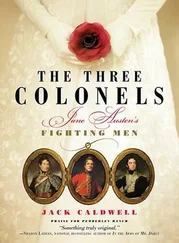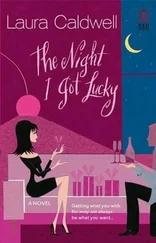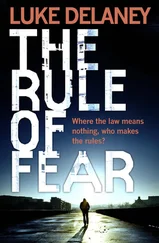What did? I prodded. Work?
Work was the euphemism I used, avoiding the title that was such an embarrassment to me around my friends.
Not work, he said quietly. Traffic.
On the way back, he kept the speedometer just two or three miles per hour above the speed limit, the way he always did. The tiny disobedience of it, the way he refused to be bound by rules, but could never really break them, grated on me more and more after getting my driver's permit.
You played well, I thought, he said, looking over at me in the passenger's seat. You made both of the foul shots I saw.
I was oh— for-five in the first half. I told Coach Ames I didn't want to play anymore.
That he didn't pause told me he'd seen it coming.
You quit? Why?
The smart take from the strong, I said, knowing it would be the next thing out of his mouth. But the tall take from the short.
He seemed to blame himself after that, as if basketball had been the final straw between us. Two weeks later, when I returned from school, the hoop and backboard in our driveway had been taken down and given to a local charity. My mother said she wasn't sure why he'd done it. Because he thought it would make things better, was all she could say.
With that in mind, I try to imagine the greatest gift I could've given my father. And as sleep descends on me, the answer seems strangely clear: my faith in his idols. That was what he wanted all along-to feel that we were united by something permanent, to know that as long as he and I believed in the same things, we would never be apart. What a job I did, making sure that never happened. The Hypnerotomachia was no different from piano lessons and basketball and the way he parted his hair: his mistake. Then, just as he must've known would happen, the moment I lost faith in that book, we were more and more apart, even sitting around the same dinner table. He'd done his best to tie a knot that would never slip, and I managed to untie it.
Hope, Paul said to me once, which whispered from Pandora's box only after all the other plagues and sorrows had escaped, is the best and last of all things. Without it, there is only time. And time pushes at our backs like a centrifuge, forcing us outward and away, until it nudges us into oblivion. That, I think, is the only explanation for what happened to my father and me, just as it happened to Taft and Curry, the same way it will happen to the four of us here in Dod, inseparable as we seem. It's a law of motion, a fact of physics that Charlie could name, no different from the stages of white dwarfs and red giants. Like all things in the universe, we are destined from birth to diverge. Time is simply the yardstick of our separation. If we are particles in a sea of distance, exploded from an original whole, then there is a science to our solitude. We are lonely in proportion to our years.
The summer after sixth grade, my father sent me to camp, a two-week affair for wayward ex-Boy Scouts, the purpose of which, I realize now, was to get me reinstated among my merit-badge peers. I'd been de-kerchiefed the year before for lighting bottle rockets in Willy Carlson's tent, and more specifically for saying I still thought it was funny even after Willy's weak constitution and excitable bladder were explained to me. Time had passed, and, my parents hoped, indiscretions had been forgotten. In the hubbub surrounding twelve-year-old Jake Ferguson, whose pornographic comic book business had turned the morally constipating experience of Scout camp into a lucrative and horizon-broadening enterprise, I was demoted to lesser-evil status. Fourteen days on the south shore of Lake Erie, my parents seemed to think, would bring me back into the fold.
It took less than ninety-six hours to prove them wrong. Halfway through the first week, a scoutmaster dropped me back at home and drove off in a wordless huff. I'd been dishonorably discharged, this time for teaching campmates an immoral song. A three-page letter from the camp director, heavy with correctional, parole-style adjectives, ranked me among the worst Boy Scout recidivists of greater central Ohio. Unsure what a recidivist was, I told my parents what I'd done.
A troop of Girl Scouts had met us for a day of canoeing, singing a song I knew from my sisters' own dark days of camps and badges: Make new friends, but keep the old; one is silver, the other is gold. Having inherited a set of alternative lyrics, I shared them with my fellow men.
Make no friends, and kick the old.
All I want is silver and gold.
Those lines alone were hardly grounds for expulsion, but Willy Carlson, in a brilliant stroke of retribution, gave the oldest camp counselor a kick as he bent over to light a campfire, then blamed the act on my influence, the new lyrics having conjured his foot into the old man's ass. Within hours, the full machinery of Boy Scout justice was in motion, and both of us were packing our bags.
Only two things came out of that experience, other than my permanent retirement from scouting. First, I became good friends with Willy Carlson, whose excitable bladder, it turned out, was nothing but another He he'd told the scoutmasters to get me kicked out the first time around. You had to like the guy. And second, I got a stern lecture from my mother, the motivation for which I never understood until my Princeton years were almost over. It wasn't the first line of the revised lyrics she objected to, despite the fact that, technically, the kicking of old people was what got me bagged. It was the strange mania of the second line that she read into.
Why silver and gold? she said, sitting me down in the small back room of the bookstore, where she kept the overstocks and old filing cabinets.
What do you mean? I asked. There was an outdated calendar on the wall from the Columbus Museum of Art, turned to the month of May, showing an Edward Hopper painting of a woman sitting alone in her bed. I couldn't help staring at it.
Why not bottle rockets? she asked. Or campfires?
Because those don't work. I remember feeling annoyed; the answers seemed so obvious. The last word has to rhyme with old
Listen to me, Tom. My mother placed a hand on my chin and turned my head until I was facing her. Her hair seemed gold in the right light, the same way the woman's did in the Hopper painting. It's unnatural. A boy your age shouldn't care about silver and gold.
I don't. What does it matter?
Because every desire has its proper object.
It sounded like something I'd been told once at Sunday school. What's that supposed to mean?
It means people spend their lives wanting things they shouldn't. The world confuses them into taking their love and aiming it where it doesn't belong. She adjusted the neck on her sundress, then sat beside me. All it takes to be happy is to love the right things, in the right amounts. Not money. Not books. People. Adults who don't understand that never feel fulfilled. I don't want you to turn out like that.
Why it meant so much to her, this correct aiming of my passions, I never understood. I just nodded in a solemn way, promised that I would never sing about precious metals again, and sensed that my mother was pacified.
But precious metals were never the problem. What I realize now is that my mother was waging a bigger war, trying to save me from something worse: becoming my father. My father's fixation on the Hypnerotomachia was the essence of misguided passion to her, and she struggled with it until the day he died. She believed, I think, that his love for the book was nothing but a perversion, a crooked deflection, of his love for his wife and family. No amount of force or persuasion could correct it, and I suppose it was when she knew she'd lost the battle to realign my father's life that she brought the fight to me.
Читать дальше












